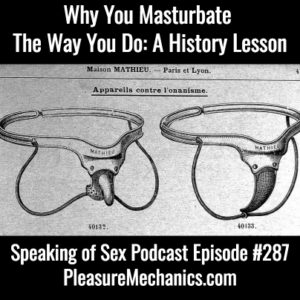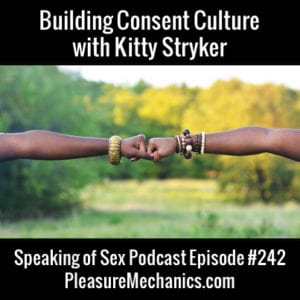Podcast: Play in new window | Download

Why do so many people struggle with masturbation? Why do so many of us feel a little bit ashamed of solo sex, treating it like a dirty chore rather than a self-love practice that can bring tremendous pleasure and health benefits?
How you masturbate – how much pleasure you give yourself, how creative you are in your solo sex, what parts of your body you allow yourself to touch, how you feel emotionally about masturbation – has everything to do with the past 3000 years of punitive sex culture. We are just barely emerging out of a culture that punished masturbation and forbade sexual pleasure of any kind. We have to take this history seriously before we can fully embrace the sex-positive idea of May as Masturbation Month!
For more about the history of sex culture and how it has influenced your sex life, check out one of my favorite books: Sex and Punishment: Four Thousand Years of Judging Desire by Eric Berkowitz

One of the best selling books in the 1720s: Onania; The Heinous Sin of Self-Pollution, And All its Frightful Consequences, in both Sexes
Check out a gallery of anti-masturbation devices here

The “Jugum Penis” anti-masturbation device. Designed to prevent nocturnal erections and masturbation.

Chastity belts for both sexes were marketed as anti-masturbation devices




